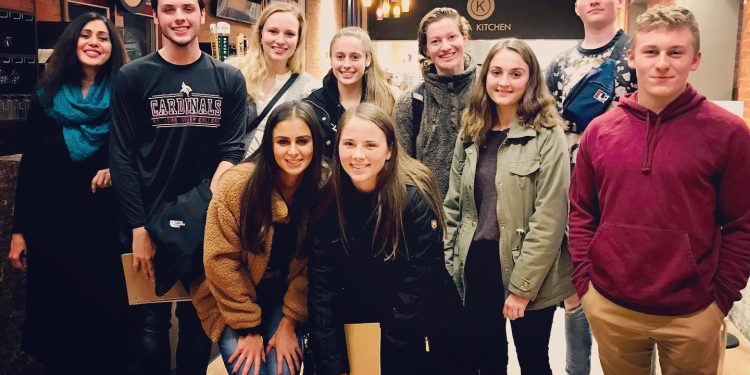
 Recently, students in Mara Ahmed’s Honors course watched Michael Winterbottom’s In This World, a documentary-style film that follows the arduous (and ultimately tragic) journey of two young men (Jamal is only 15) who risk everything and travel from a refugee camp in Pakistan to Iran, to Turkey, to Trieste in Italy to London. Some parts of their journey are more harrowing than others, but one that’s particularly unforgettable is the long voyage on board a ship (from Turkey to Italy) during which they are locked along with others in a dark, suffocating, metallic container. Most don’t make it out alive.
Recently, students in Mara Ahmed’s Honors course watched Michael Winterbottom’s In This World, a documentary-style film that follows the arduous (and ultimately tragic) journey of two young men (Jamal is only 15) who risk everything and travel from a refugee camp in Pakistan to Iran, to Turkey, to Trieste in Italy to London. Some parts of their journey are more harrowing than others, but one that’s particularly unforgettable is the long voyage on board a ship (from Turkey to Italy) during which they are locked along with others in a dark, suffocating, metallic container. Most don’t make it out alive.
Professor Ahmed shared on Facebook some of the students’ observations:
They were surprised by the corruption of the bureaucracy (officials had to be bribed at every checkpoint), the cultural and linguistic mosaic they didn’t expect (sometimes w/i the same country), and the rationing of food in refugee camps (they said they felt nauseated by comparing it to how much food is wasted here in the US). They couldn’t believe that Jamal had such a good head on his shoulders at such a young age, yet they laughed at his jokes and his desire for the largest scoop of ice-cream – reminders that he was just a child after all. they talked about how billions are spent on wars against some of the most vulnerable people and they also connected the fate of the two boys they got to know in the film to 9/11 and america’s response to it.
They made some out-of-the box connections, e.g. to the underground railroad – how people have always taken risks, journeyed, and secretly crossed borders to escape oppression and make better, safer lives for themselves and their families. They noticed how Jamal and Enayat were welcomed by Kurdish villagers who helped them get to Turkey, and thought about the generosity of a people who don’t have sovereignty themselves, but will do everything they can to get someone else ‘home.’ Finally, they shared how refugees and immigrants (‘migrants’) are mostly invisibilized and how seeing them up close through the film moved them in unexpected ways.
We also read Warsan Shire’s poem ‘Home’ and Fady Joudah’s ‘Mimesis.’ Rather than ask them to write an analytical essay on the film, which is what we usually do, I asked them to write about one leg of Jamal’s journey in the first person, to tell me his thoughts and feelings but also details related to the situation he is caught in. I just read some of their responses and I’m blown away.
I feel like we’ve hooked into something here. Something profound.